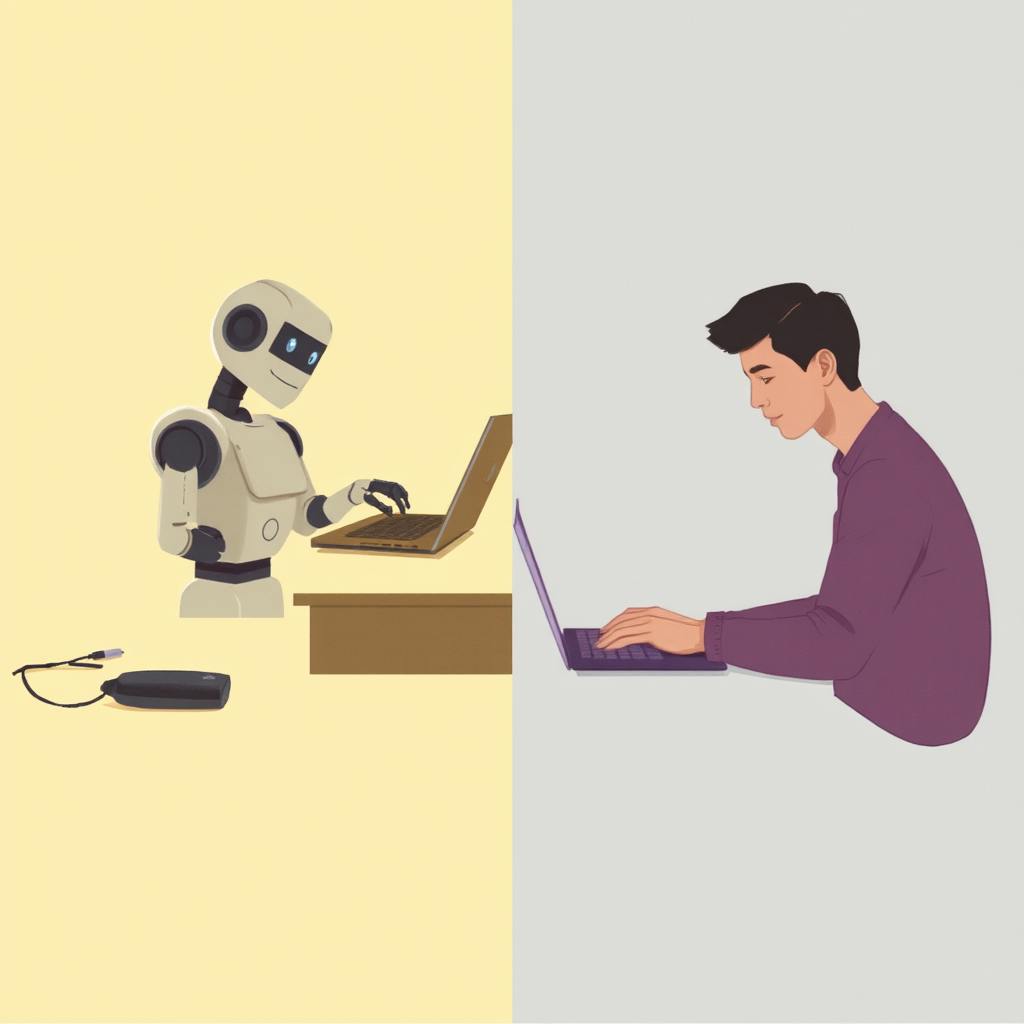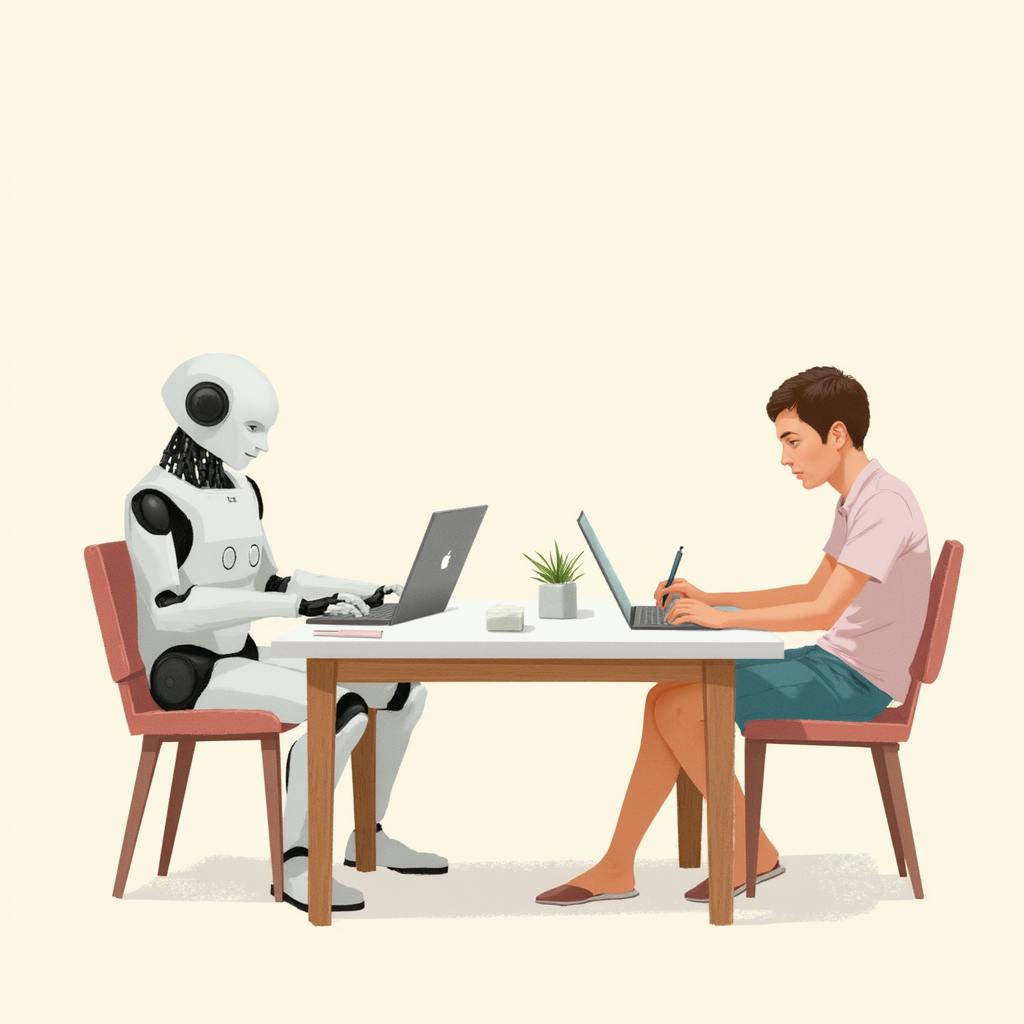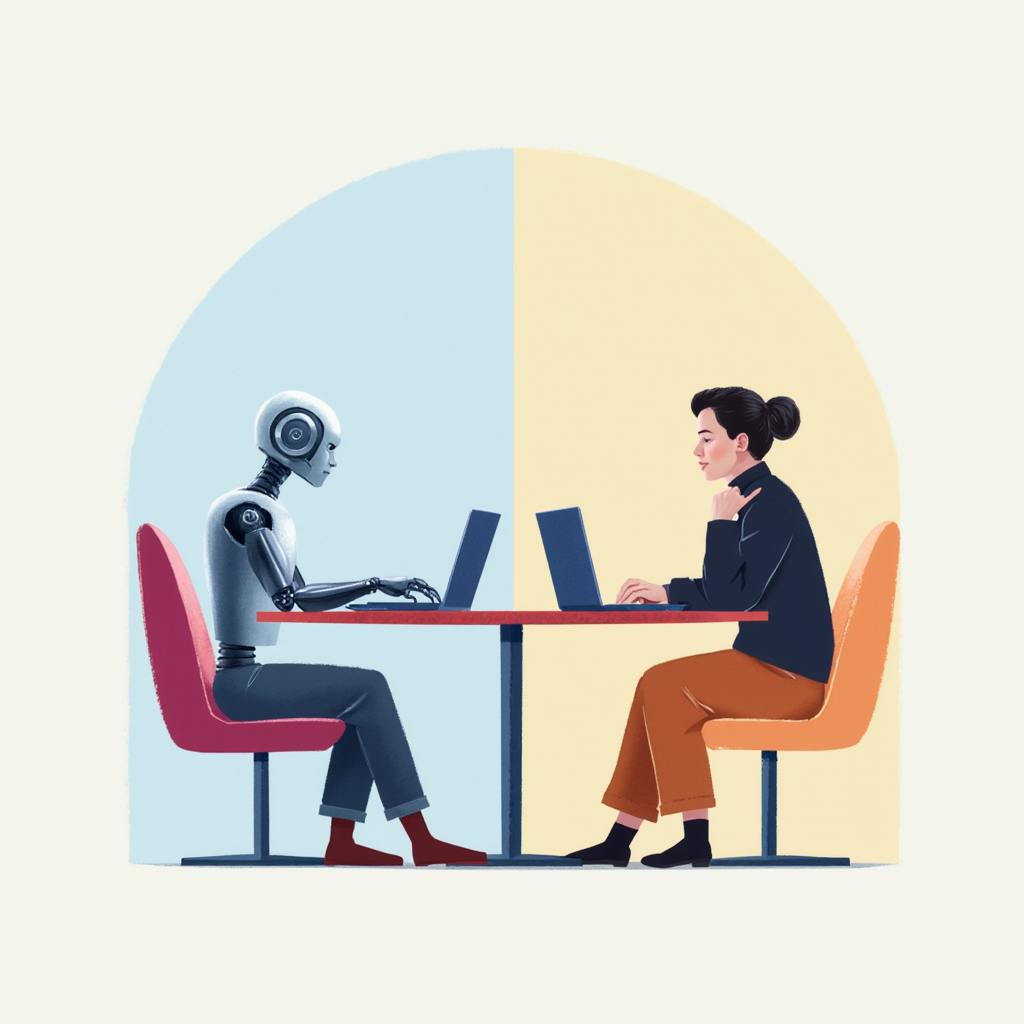The debate surrounding AI writing vs human writing has gained significant traction. As artificial intelligence continues to advance, it presents new opportunities and challenges in how we create and consume written content. This article aims to explore the differences between AI and human writing, weighing the pros and cons of each, and ultimately determining which is better suited for various writing tasks.
Understanding the Differences Between AI and Human Writing
AI writing, powered by sophisticated algorithms and machine learning models, can generate content at an impressive speed and with high consistency. It excels in producing data-driven content, such as reports or summaries, where factual accuracy and clarity are paramount. Conversely, human writing is often imbued with emotion, creativity, and context sensitivity that machines struggle to replicate. The unique ability of humans to understand cultural nuances and employ subtle rhetorical devices remains a critical differentiator.
Pros and Cons of AI Writing
Pros
- Efficiency and Speed: AI can produce content rapidly, making it ideal for tasks requiring quick turnaround times.
- Scalability: AI can handle large volumes of data and produce consistent outputs across different topics and formats.
- Cost-Effective: Over time, AI can reduce the costs associated with content production.
Cons
- Lack of Creativity: AI struggles with open-ended creative tasks, such as crafting fiction or nuanced storytelling.
- Limited Emotional Depth: Understanding and articulating human emotions remain a challenge for AI.
- Dependence on Quality Data: The quality of AI-generated content is heavily reliant on the quality and variety of its training data.

AI made with Dean Jones
Comparing Machine-Generated Content to Human Writing
When comparing machine-generated content to human writing in terms of quality, several factors come into play. AI excels in areas like data interpretation and structured content generation, where human subjectivity is minimal. However, humans are superior in delivering compelling narratives, understanding audience tone, and creating persuasive arguments.
In creative writing, for instance, the blend of human emotion and intuitive thought cannot be fully replicated by AI. While AI can provide inspiration or augment a writer's work, the authentic voice of a human writer provides connection and engagement with readers that machines are yet to master.
Human vs Automated Writing Quality
The quality of writing, whether generated by AI or humans, is contingent upon the task at hand. For content that is technical or fact-based, AI can often provide more reliable and faster results. However, for tasks requiring depth, such as opinion pieces or creative content, human writers are indispensable due to their ability to convey complex ideas and emotions effectively.
FAQ: AI Writing vs. Human Writing
What are the main differences between AI writing and human writing?
AI writing and human writing differ primarily in their origins and processes. AI writing is generated by algorithms and machine learning models that process and analyze vast amounts of text data to produce content. This enables AI to generate structured, data-driven responses efficiently. Human writing, on the other hand, is produced by individuals who draw on personal experiences, emotions, creativity, and cognitive processes to craft narratives and articulate ideas. The subtlety and depth of human expression, such as emotional nuance, cultural references, and unique perspectives, typically distinguish human writing from AI-generated content.
How does the quality of AI writing compare to human writing?
The quality of AI writing, particularly from advanced models, has improved significantly, providing grammatically correct, coherent, and contextually relevant content. For tasks like summarization, data reporting, and basic article generation, AI can match or even surpass human performance in speed and consistency. However, when it comes to creativity, critical thinking, and emotional resonance, human writing generally prevails. The nuanced understanding and the ability to convey complex emotions remain something AI struggles to fully replicate. The quality of writing can also depend on the specific use case and audience needs.
Can AI writing ever fully replace human writing?
While AI writing can substantially augment human capabilities by streamlining productivity and handling repetitive tasks, it is unlikely to fully replace human writing. Human authorship encompasses creativity, emotional depth, moral reasoning, and socio-cultural insights, which are difficult to replicate with algorithms. Moreover, storytelling, literature, and art thrive on the unique perspectives and experiences of human writers. The future is likely to see a collaborative landscape where AI assists human writers by automating routine tasks and suggesting improvements, allowing humans to focus on more creative and nuanced work.
What are the advantages and disadvantages of AI writing versus human writing?
Advantages of AI Writing
- Efficiency and Speed: AI can produce large volumes of content quickly, which is ideal for businesses needing to generate reports, update content, or automate communication.
- Consistency: AI ensures consistent use of tone and style, especially useful in maintaining a brand voice across different platforms.
- Cost-Effectiveness: Automating repetitive or straightforward content writing can reduce costs associated with human labor.
Disadvantages of AI Writing
- Lack of Creativity and Emotion: AI-generated content may lack the originality, creativity, and emotional impact that human writers naturally produce.
- Contextual Understanding: AI may misinterpret context, especially in complex, nuanced situations or with culturally specific references.
- Dependence on Data: AI relies on existing data to generate content, which can lead to output that feels formulaic or generic.
Advantages of Human Writing
- Creativity and Innovation: Human writers can create original content, infuse emotion into their work, and explore abstract concepts.
- Cultural and Emotional Insight: Human writers can leverage their life experiences and cultural background to create content that resonates emotionally and contextually.
- Ethical and Moral Consideration: Human writers can deliberate on ethical issues and incorporate personal judgment in their narratives.

AI made with Dean Jones
Disadvantages of Human Writing
- Time and Resource Intensive: Crafting quality content can be time-consuming and require substantial human resources.
- Inconsistency: Human writers may inadvertently introduce variability in style and tone, especially across different content pieces.
Conclusion
In the ongoing discussion of AI writing vs human writing, it is clear that both have distinct advantages and limitations. AI writing is advantageous for its efficiency and scalability, making it suitable for bulk content creation and data-driven tasks. Human writing, on the other hand, remains unparalleled in creativity, emotional depth, and its ability to resonate with audiences on a personal level.
Ultimately, rather than positioning AI and human writing at odds, a symbiotic relationship between the two could represent the future of content creation. By leveraging the strengths of both, we can enhance productivity while ensuring the intellectual and emotional richness of human insight remains integral to the written word.

